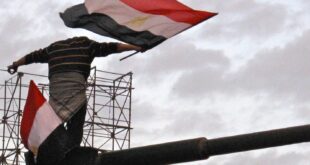Scroll down for Arabic abstract. This study investigates how Egyptian online journalism handled the events of the January 2011 and June 2013 revolutions in Egypt, evaluating them from the perspective of peace journalism. The analysis was conducted using the following three criteria: The different ways of presenting and covering these …
Read More »Egypt
Superior, Violent and Aggressive: Hegemonic Masculinity in Arabic Music Videos
Abstract Free access to music videos on YouTube has allowed generations of consumers to be exposed to songs from their favorite artists on a daily basis. Presented in the form of music videos, these songs contain visuals that carry several themes including the glorification of violence and the dominance of …
Read More »Attitudes Toward the Role of Social Networks in Shaping Health Awareness during the COVID-19 Pandemic: An Actor-Network Theoretical Study of Egypt (Arabic)
Scroll down for Arabic abstract. Official statistics show that Egyptians, especially the youth, are increasingly using social networks. It is therefore important to examine the role these networks had in shaping the cognitions and attitudes of Egyptians towards the COVID-19 pandemic. The present study uses an interdisciplinary approach, utilizing both …
Read More »The Impact of Social Media on Arab Health Risk Perception during COVID-19
Abstract During the pandemic, social media became a repository for information obtained through official pages of governments in charge. Official and unofficial news sources occasionally featured false or misleading news.This study focuses on Arab audiences from the MENA region, aiming to investigate their social media usage, reliance, and impact during …
Read More »Pragmatics in Egyptian and Chinese Journalistic Discourse on Covid-19 Global Health Diplomacy: A Comparative Study and Proposed Preventive Geopolitics Perspective (Arabic)
Scroll down for Arabic abstract. This article attempts to use pragmatics for the analysis of opinion material on Youm7 and China Arabic websites. A sample survey from the period between January 1 and December 31, 2020 on global health diplomacy against COVID-19 has been conducted. The findings indicate that both …
Read More »Book Review | Routledge Handbook on Contemporary Egypt
Edited By Robert Springborg, Amr Adly, Anthony Gorman, Tamir Moustafa, Aisha Saad, Naomi Sakr, Sarah Smierciak This 465-page volume is divided into six main sections, each with a forward written by a sub-editor. Each section has four or five chapters all written by other separate authors for a total of …
Read More »Book Review | Routledge Handbook on Arab Media
First Edition - Edited By Noureddine Miladi, Noha Mellor (Routledge, 2020) The Routledge Handbook on Arab Media is an encyclopedic depiction of the history, roles, models of ownership, and regulations of print, broadcast, and online media in 20 Arab countries out of the 22 Arab countries represented in the Arab …
Read More »“I’ll See You on Zoom!” International Educators’ Perceptions of Online Teaching Amid, and Beyond, Covid-19
Abstract When the COVID-19 pandemic swept the world in 2020, it affected every aspect of life, including education. The spread of this pandemic compelled the world to shift from traditional classroom education to online learning. This exploratory qualitative research study investigates the critical and timely topic of the sudden transition …
Read More »The Role of Smartphone Applications in Risk and Natural Disaster Communication Management (Arabic)
Scroll down for the Arabic abstract. Abstract Natural disasters are one of the most dangerous challenges facing societies because of the heavy human, economic, and social losses they cause, besides the damages in infrastructure and holdings. While it is difficult to prevent some risks or disasters, the efficiency and effectiveness …
Read More »Factors Influencing Public Attitudes toward Paid Online Newspaper Subscriptions- A Field Study (Arabic)
Scroll down for the Arabic abstract. Abstract Despite the implementation of new business models in several Western media organizations, most Arab newspapers have not yet explored these models, and little is known about public attitudes towards their willingness to pay for online news. The study sought to identify factors that …
Read More » Arab Media & Society The Arab Media Hub
Arab Media & Society The Arab Media Hub










